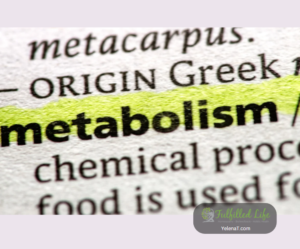Ladies, let’s embark on a journey to uncover the truth about what we’re putting into our bodies. Processed foods, the convenient staples of our modern lives, may be causing a lot more harm than we realize. Today, we’re going to dive into why these so-called “foods” could be disrupting our health, causing symptoms that many of us may have experienced but never truly understood.
The Trouble with Processed Foods
Picture this: you’re dashing through the supermarket aisles, and you snag that alluring packaged meal, believing it’s a time-saving solution. While it may be convenient, the contents of that package often fall far short of a nourishing meal. Processed foods, adorned with their extended shelf lives and captivating labels, harbor a concealed truth. These seemingly convenient choices might offer a momentary fix, but have you noticed how they often leave you unsatisfied, drained of energy, and yearning for more unhealthy snacks?
These so-called foods have been associated with a litany of health concerns. They possess the potential to harm the lining of our gut, disrupt the mechanisms safeguarding our precious DNA, and even confound our immune systems, culminating in chronic inflammation and autoimmune conditions. How does this unfortunate scenario unfold? Eight notorious additives and dyes are often the culprits:
- Sugar: A pervasive and often hidden ingredient, sugar can wreak havoc on blood sugar levels and contribute to a host of health problems.
- Salt: Excessive sodium intake is linked to hypertension and other cardiovascular issues.
- Emulsifiers: These additives can disrupt the balance of gut bacteria, potentially leading to digestive disturbances.
- Organic Solvents: Found in some processed foods, these chemicals are best avoided due to their potential health risks.
- Gluten: Known for its role in celiac disease, gluten sensitivity can manifest with various unpleasant symptoms.
- Microbial Transglutaminase: This enzyme, used in food processing, may have implications for gut health.
- Artificial Colorings: Synthetic dyes, often used to make processed foods more visually appealing, can have adverse effects on health.
- Nanoemulsions: These tiny structures can enhance the texture of processed foods but may have unintended consequences for your health.
The alarming reality is that these additives can often inflict more harm than good, and it’s crucial to be vigilant about the ingredients in the foods we consume.
The Dangers of Artificial Sweeteners
Now, let’s talk about the sweet deception of artificial sweeteners. Many of us turn to them, thinking they are a healthier alternative to sugar. However, recent research suggests otherwise. Think about those moments when you opted for a diet soda during a busy workday or reached for sugar-free snacks to curb your sweet cravings. Little did you know that these sweeteners, like aspartame (found in Equal and NutraSweet) and sucralose (Splenda), have been linked to Hashimoto’s, an autoimmune thyroid condition. And remember those seemingly harmless low-calorie desserts you indulged in? Past studies have shown that these sweeteners can also wreak havoc on our gut microbiome and disrupt our blood sugar metabolism, pushing our gut flora in the direction of bacteria that promote obesity.
As a wise saying goes: “If your great-grandmother wouldn’t recognize it, or you can’t pronounce what’s on the food label, don’t eat it.” It’s a simple yet profound rule to live by.
Solutions for a Healthier You
Now, let’s shift our focus to real-life solutions that many of us can relate to. It’s not just about avoiding processed and artificial foods; it’s about nourishing our bodies with real, whole foods. Consider this scenario:
Life can get hectic, and we often find ourselves rushing through the day, grabbing quick and convenient snacks. We’ve all experienced those moments of persistent fatigue and unexpected mood swings, wondering what’s causing them. If this sounds familiar, you’re not alone.
Many of us can relate to these challenges. But making simple yet effective changes to our diet can make a world of difference. It’s about incorporating colorful vegetables, lean proteins, nourishing fats, and complex carbohydrates into our meals.
For instance, swapping that morning sugary cereal for a hearty bowl of oatmeal topped with fresh berries and a sprinkle of nuts can provide sustained energy throughout the day.
At lunchtime, instead of opting for fast food, consider a vibrant salad packed with leafy greens, grilled protein, and a variety of colorful veggies. This can help stabilize mood swings and keep you alert during afternoon activities.
In the evening, indulging in homemade dinners rich in lean proteins like salmon or tofu, accompanied by a rainbow of vegetables and a side of quinoa, can leave you feeling satisfied and full of energy.
These simple changes in our daily food choices can lead to significant improvements in our overall well-being. It’s about embracing whole, real foods as the building blocks of health.
Whether you’re navigating a busy schedule, managing a household, or both, nourishing your body with these wholesome choices can be a game-changer. And remember, it’s not just about what you eat but how you feel.
These are the solutions that can transform your life. By prioritizing real, whole foods in your diet, you’ll unlock newfound energy and experience a positive shift in your mood, vitality, and overall well-being.
So, as you navigate your daily life, remember that your food choices can be a source of empowerment and well-being. It’s time to fuel your body with the nourishment it deserves.
Unlocking the Power of Testing
Now, let’s delve into the essential aspect of testing, which directly ties into the impact of artificial and processed foods on our health. These tests can be your guiding light, helping you navigate the path to optimal well-being by uncovering potential disruptions caused by these non-foods.
Consider this scenario: you’ve been consuming processed foods for a while, and you’re grappling with mysterious symptoms, from unexplained fatigue to persistent skin issues. You might wonder if there’s a connection between your diet and these health challenges. That’s where testing comes into play.
- Toxins and Chemicals: Processed foods often harbor hidden toxins and chemicals that accumulate in our bodies over time. Comprehensive testing can identify the presence of harmful substances and guide us toward detoxification strategies.
- Mold Exposure: Mold is a common issue in many processed foods. It can trigger a range of health problems, from respiratory issues to cognitive impairments. Testing for mold exposure can help pinpoint its impact on your health.
- Nutrient Deficiencies: Processed foods lack essential nutrients while being loaded with empty calories. Testing can reveal deficiencies in vital vitamins and minerals, enabling us to tailor a nutrition plan to address these gaps.
- Hormonal Imbalances: The additives and chemicals in processed foods can disrupt our hormonal balance. Hormone testing can shed light on imbalances that may be contributing to mood swings, weight fluctuations, and other symptoms.
- Gut Health: The gut is often referred to as the “second brain.” Processed foods can wreak havoc on gut bacteria, leading to digestive discomfort and brain fog. Testing can assess the state of your gut microbiome and guide you toward restoration.
Understanding how these non-foods affect your body is the first step in regaining control of your health. I’ve had the privilege of guiding many women on this transformative journey, and it’s one I’ve traversed myself.
I stand ready as your companion and source of unwavering support. Should any of these experiences resonate with you, I extend an invitation for us to connect. Together, we can explore the unique path to your well-being and have a conversation about how holistic wellness might hold the key to your vitality. Your health is a priceless investment, and I’m genuinely here to offer my support throughout every step of your journey.








